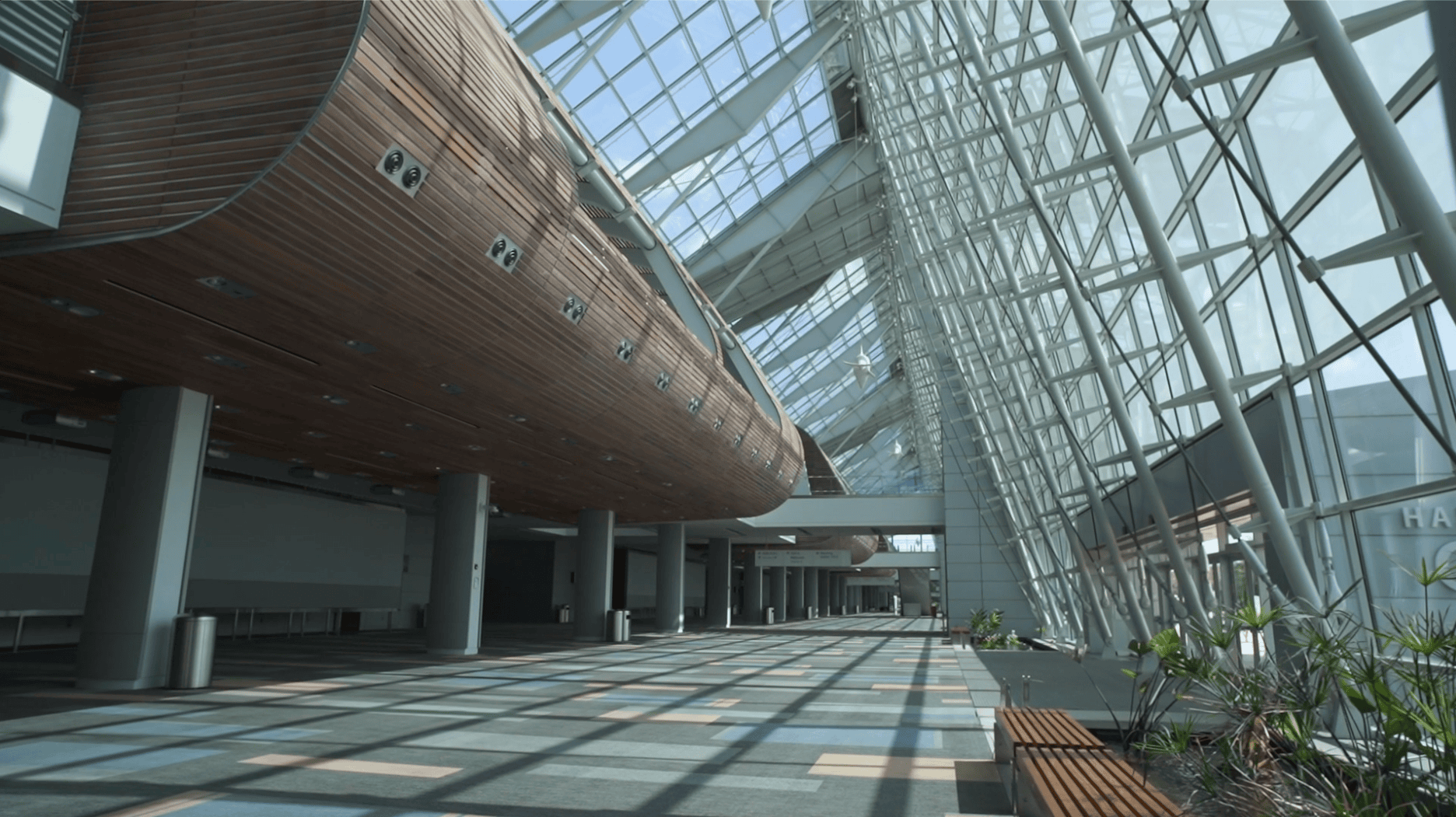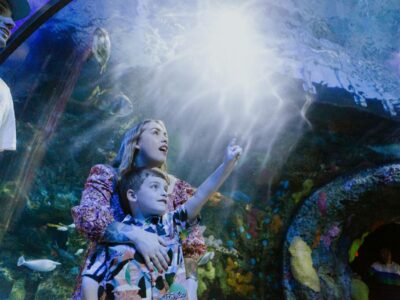
Green Initiatives
Here at the Virginia Beach Convention Center, we’re experts of enjoyment. Virginia Beach knows how to masterfully have a great time and it just wouldn’t be fair to keep that a secret. Allow us to welcome you into our home. We pride ourselves in being the nation’s first convention center to earn LEED® Gold certification from the U.S. Green Building Council. Our eco-friendly, state-of-the-art building can handle meetings and events of any capacity. As a part of the Virginia Beach Convention and Visitors Bureau, a visit to the Virginia Beach Convention Center will transform you into a local in no time. Located only minutes from the beach and resort area, we have all the perks of coastal charm and big-city amenities at our fingertips. Enjoy our expansive variety of hotels, entertainment, shopping and dining.
We’ve got everything ready for you – see you soon.
Recycling
- The following items are collected in pre-function spaces, offices, meeting rooms, exhibit halls and all back of house spaces. Commingled materials are compacted and transported to an offsite recycling facility.
- Glass and plastic bottles.
- Aluminum, tin and steel cans.
- Paper, cardboard and chipboard.
- Mercury is captured from proper disposal of fluorescent lamps via an onsite disposal system.
- Battery recycling from all hands-free plumbing devices, computer accessories, etc.
- Used cooking oil is removed from the site and recycled.
- Steel, copper, aluminum, concrete and cinder blocks were recycled from our old convention center during demolition and some were reused as fill material in construction of our new center.
Energy Reduction
- High efficiency Heating and Air Conditioning (HVAC).
- Lighting and HVAC systems programmed based on event schedules to minimize usage during non-peak times.
- Timers and motion sensors that turn lights off when rooms are unoccupied.
- Individual thermostats for meeting rooms and office spaces.
- Extensive use of natural lighting.
- Thermal-rated windows and insulation.
- Energy efficient glass system that limits ultra violet (UV) light penetration in the large pre-function spaces.
- A program has been initiated to upgrade incandescent lamps to more energy efficient compact fluorescent lighting or LED lighting.
- Non-essential items turned off when spaces not in use such as escalators, video walls and similar items.
- Tracking overall energy bills with established goals to reduce energy usage.
Water Efficiency
- Tracking overall water usage and wastewater.
- High efficiency dishwashers.
- Microfiber technology mops.
- Low flow restrictors on faucets.
- Hand sinks and soap dispensers with motion sensors.
- Effective landscape management plan which utilizes drought tolerant species, metering and rain gauges, and minimizes lawn areas.
- Effective storm water management with vegetative buffers around storm ponds.
- Automated irrigation system measures rain and limits irrigation demand.
- Minimization of impervious areas (paving, concrete, etc.).
Waste Reduction and Environmentally Friendly Practices
- Food Services
- Eliminated the use of Styrofoam.
- Use dishware and glassware to minimize use of disposables.
- Concession stand disposable containers are made from:
- Bio-based materials.
- Compostable.
- Use water stations to minimize the use of single-use bottles.
- Food overages are donated.
- Food waste is composted.
- Effective food inventory control to minimize wastes.
- When available, purchase locally-grown produce and other foods.
- Onsite seasonal herb and vegetable garden.
- Office/Purchasing
- Purchase recycled-content paper towels and toilet tissue.
- Purchase from vendors and serves providers with commitment to the environment.
- 2-sided copies/printing.
- Use electronic correspondence and forms.
- Purchase recycled content paper.
- Purchase of durable equipment and furniture.
- Maintenance
- Uses low or no VOC Latex Paint.
- Proper recycling and/or disposal of thinners and solvents.
- Aggressive carpet maintenance program to maximize the life of carpets.
- Preventative maintenance of all appliances, HVAC systems, plumbing, and vehicles.
- Last-in/first-out inventory and effective labeling systems.
- Minimize use of pesticides and herbicides (integrated pest management practices).
- Use of environmentally-friendly housekeeping products including the following:
- Recycled content paper products.
- Microfiber cloths and mops that are washed on site for reuse.
- “Green Label” vacuums and floor scrubbers for improved indoor air quality.
- Green Seal certified cleaning products.

Sustainable Virginia Beach
With miles of coastline and waterways, state parks, a national wildlife refuge, rural agricultural communities and a diverse population of marine wildlife, the health of our environment is crucial to our daily life in our coastal city. Whether you want to get your boots in the mud or simply make…
Let’s Go





